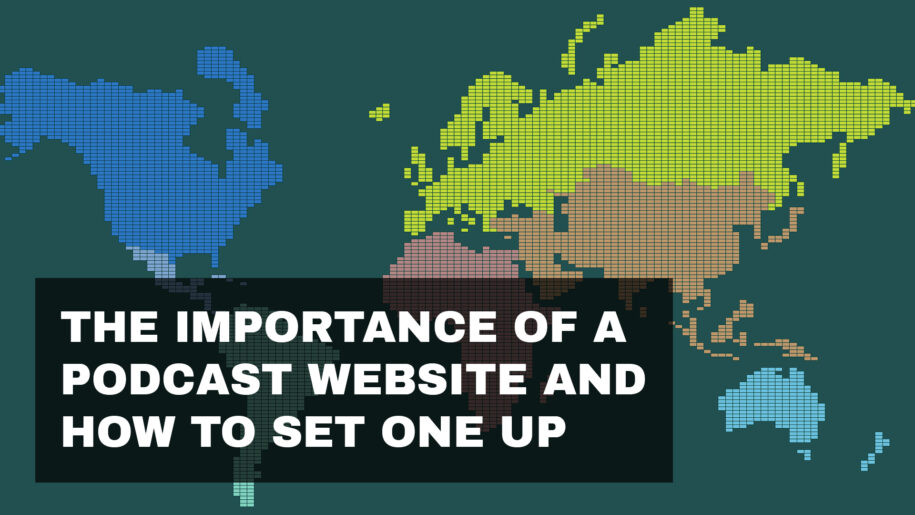Creating a podcast is an exciting journey, but to maximize your podcast’s potential, having a dedicated website is crucial. A podcast website serves as a central hub for your content, helps you build a loyal audience, and enhances your podcast’s visibility. In this blog post, we’ll explore the importance of a podcast website and provide a step-by-step guide on how to set one up.
Why You Need a Podcast Website
A podcast website offers numerous benefits that contribute to the growth and success of your podcast. Here’s why having a podcast website is essential:
Benefits of a Podcast Website
1. Central Hub for Your Content
- What It Is: A dedicated platform where all your episodes, show notes, and additional content are hosted.
- Why It Matters: It provides a one-stop destination for your listeners to access all your content easily.
2. Enhanced Discoverability
- What It Is: Optimizing your website for search engines (SEO) can increase your podcast’s visibility.
- Why It Matters: Improved search rankings help new listeners find your podcast through organic search.
3. Audience Engagement
- What It Is: Features like comment sections, forums, and newsletters foster interaction with your audience.
- Why It Matters: Engaging with your audience builds a community around your podcast and encourages listener loyalty.
4. Monetization Opportunities
- What It Is: A website can host ads, sponsorships, and affiliate links, providing additional revenue streams.
- Why It Matters: Monetizing your website can support your podcasting efforts financially.
5. Professional Branding
- What It Is: A well-designed website enhances your podcast’s brand identity.
- Why It Matters: Professional branding attracts more listeners and establishes credibility in your niche.
How to Set Up Your Podcast Website
Setting up a podcast website involves several steps, from choosing a platform to optimizing for SEO. Here’s a step-by-step guide to help you get started:
1. Choose a Website Platform
- What It Is: Select a content management system (CMS) to build and manage your website.
- Why It Matters: The right platform will make it easier to create, update, and maintain your site.
- Popular Options: WordPress, Squarespace, Wix.
2. Pick a Domain Name
- What It Is: Your website’s address on the internet (e.g., www.yourpodcastname.com).
- Why It Matters: A memorable and relevant domain name helps listeners find your site easily.
- Tips: Keep it short, easy to spell, and reflective of your podcast’s name or niche.
3. Select a Hosting Provider
- What It Is: A service that stores your website’s files and makes them accessible on the internet.
- Why It Matters: Reliable hosting ensures your website loads quickly and is always available to visitors.
- Popular Providers: Bluehost, SiteGround, HostGator.
4. Design Your Website
- What It Is: Create a visually appealing and user-friendly website layout.
- Why It Matters: A well-designed site enhances user experience and keeps visitors engaged.
- Tips: Use a clean and responsive design, easy navigation, and consistent branding.
5. Add Essential Pages
- What It Is: Create key pages such as Home, About, Episodes, Blog, and Contact.
- Why It Matters: Essential pages provide important information and improve site structure.
- Details:
- Home: Introduction to your podcast, latest episodes, and call-to-action.
- About: Information about you and your podcast’s mission.
- Episodes: Archive of all episodes with show notes and transcripts.
- Blog: Additional content related to your podcast’s niche.
- Contact: Ways for listeners to reach you.
6. Integrate Podcast Player
- What It Is: Embed a podcast player on your website to stream episodes directly.
- Why It Matters: Easy access to episodes enhances user experience and increases listening rates.
- Tools: Use plugins or widgets provided by your podcast hosting service.
7. Optimize for SEO
- What It Is: Implement strategies to improve your website’s search engine rankings.
- Why It Matters: Better SEO increases organic traffic and discoverability.
- Tips:
- Use relevant keywords in titles, headings, and meta descriptions.
- Create high-quality, engaging content.
- Ensure fast loading times and mobile-friendly design.
- Use internal and external links.
8. Promote Your Website
- What It Is: Drive traffic to your website through various marketing strategies.
- Why It Matters: Increased traffic can lead to more listeners and higher engagement.
- Strategies: Share your website on social media, include links in your podcast episodes, and collaborate with other podcasters.
Real-Life Examples and Lessons
To illustrate the importance and effectiveness of a podcast website, let’s look at some real-life examples:
- Example 1: A health and wellness podcast saw a 30% increase in downloads after launching a dedicated website with SEO-optimized content and engaging blog posts.
- Example 2: A business podcast used their website to host exclusive webinars and workshops, generating additional revenue and growing their email list by 40%.
A podcast website is a vital tool for promoting your podcast, engaging with your audience, and establishing a professional brand. By following the steps outlined above, you can create a compelling and effective podcast website that enhances your podcast’s reach and impact. Start building your website today to take your podcast to the next level.
By implementing these strategies, you can ensure that your podcast website attracts more visitors, retains listeners, and supports your podcast’s growth.


